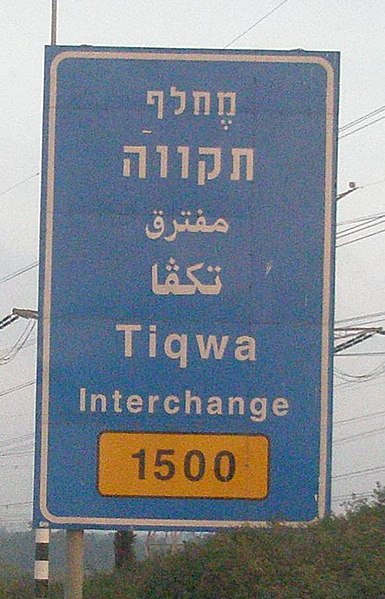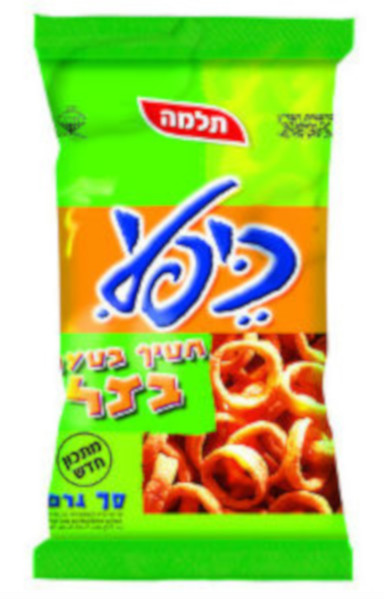Writing With and Without Vowels
4 June 2019
Many Hebrew learners find the topic of nikkud (vowel signs) and spelling confusing. On pealim.com, for many words - for example, this verbal infinitive: ~ לכתוב lichtov, you see two different alternative forms - one is with nikkud, and the other one is without nikkud but with an extra letter (and, to make things even more confusing, written in a smaller font). We are often asked - which way of writing is correct?
The simple answer is, well, both are correct - we wouldn’t willingly list incorrect forms just to confuse the readers! To give you a more meaningful answer, we will start with a very brief overview of the spelling styles used in Hebrew. The main ones are the following:
- Vowelled writing, or ktiv menukad. It is used in Hebrew learning materials (including books and newspapers for Hebrew learners), children’s books, poetry and religious texts that are supposed to be read out loud (e. g., Tanach and sidurim).
- Vowelless writing, or ktiv hasar nikud. This is the normal and most common style of writing. It is used everywhere else, including books, newspapers, websites, letters, emails, personal notes, text messages, film subtitles, corporate materials, legal documents, wall graffiti, posters and announcements. Whatever you are doing - unless you are learning Hebrew or reading ancient texts - you will most likely encounter vowelless writing.
- Most of the time, texts without nikkud use extra letters to make reading easier and reduce ambiguity - in particular, is added in some cases to denote an i sound, is added to denote a u or o sound, and consonantal (i. e. one that is read as v) and consonantal (i. e. one that is read as y) may be doubled. In addition, in foreign words an is sometimes added to denote an a sound.
- Hebrew Academy has a set of rules that determine when extra letters are added (here are the rules in Hebrew) - though these rules are not often observed in practice, and the Academy changes them from time to time. This is a short summary of these rules in English.
- A lot of proper names from the Tanach ( Moshe, David, Shlomo) and Biblical words ( Kohen) retain their original spelling.
- Often, words that should be spelled with an extra letter according to the Academy’s rules ( dov “bear”, moach “brain”, koach “power”) are written without one: דב, מח, כח, especially in older texts. Some words (for example, ima “Mom”) are almost never written according to the Academy rules.
- In some cases it’s the other way around: a word can be written with an extra letter, even if it is not prescribed by the Academy rules (שיחרור shichr`ur instead of שחרור, or aliya instead of עליה).
- Some dictionaries and textbooks give words both with vowels and with extra letters that are added in כתיב מלא (for example, - with an added ). In our website, we give this kind of spelling in some places (to save space and make the words more recognisable), but we give the canonical word form (with nikkud and without extra letters) and ktiv male (if any extra letters are added) in the inflection tables.
Now, we are ready to cover the questions that Hebrew learners often ask.
Frequently asked questions
So, what is the right way of writing - with or without vowels?
This really depends on the context - as we described above. Please see below for some more specific situations.
Should I use nikkud in my writing?
No, most likely you don’t. Whatever you are writing - unless you have specifically been asked by your Hebrew teacher to write something with nikkud, you should write without vowel signs. Using vowels out of context is strange and unnatural.
Should I learn nikkud signs?
That helps a lot. You will likely need them to understand beginner Hebrew texts. Also, sometimes, nikkud is added to a word in a text to reduce ambiguity (for example, in this road sign to distinguish mechlaf "interchange" from machlef "commutator" or to indicate how a product name should be pronounced:



Photo credits: דוד שי, etc.
Apart from that, looking on the word’s nikkud can help to see how a word is inflected and how it is related to other words - however, this is a much deeper topic
Which spelling is correct - with or without added letters?
Don’t overthink this question. The general rule is that you should use added vowels to avoid ambiguity - however, other than that, there is no wrong answer. For example, take the word ~ צוהריים tzohorayim “afternoon”:
In the original (unvowelled) Tanach text, it was written צהרים. This spelling is not used in modern Hebrew.
The most common spelling is צהריים (with a double י to distinguish the -ayim ending from the -im ending) - it was prescribed by the Academy's rules until around 2017 and is still used by most of the people today;
Since 2017, the Academy’s rules prescribe to write צוהריים (with a double י and an additional ו to denote the o) - however, this spelling has not been adopted by most of the speakers.
In your own writing, you can try to stick to the style your textbook is using (or, if you are at an advanced level, to the Academy’s rules). The rules of spelling we are using on pealim.com are quite similar (though not identical) to the Academy’s ones. In general, try to see how people around you write (including people on the internet, as well as writers and journalists), observe their style and try to absorb what you see fit.
Why do you give vowelled and vowelless forms in different font size?
This is simple - since nikkud signs are small, we generally use a larger font when giving nikkud so that you don’t have to constantly increase the font size in your browser to see the dots and then decrease it to read the rest of the text. There is no deeper meaning behind this.
If you have any other questions, please let us know!